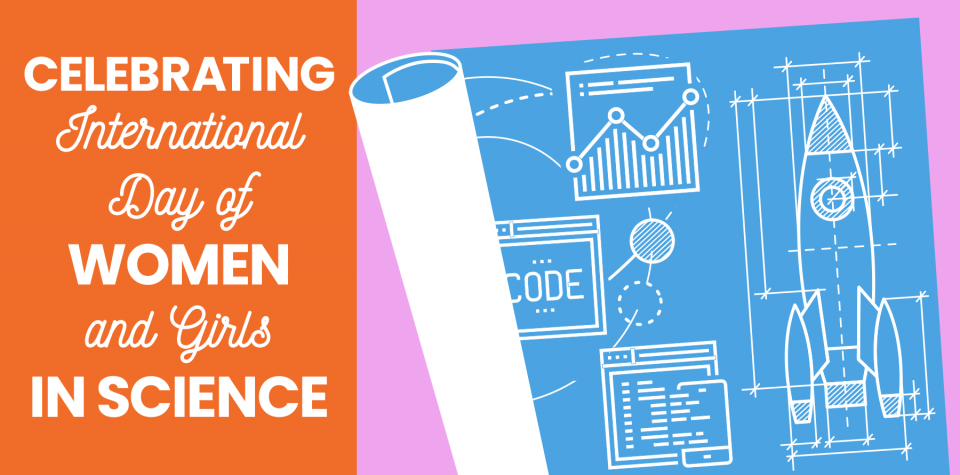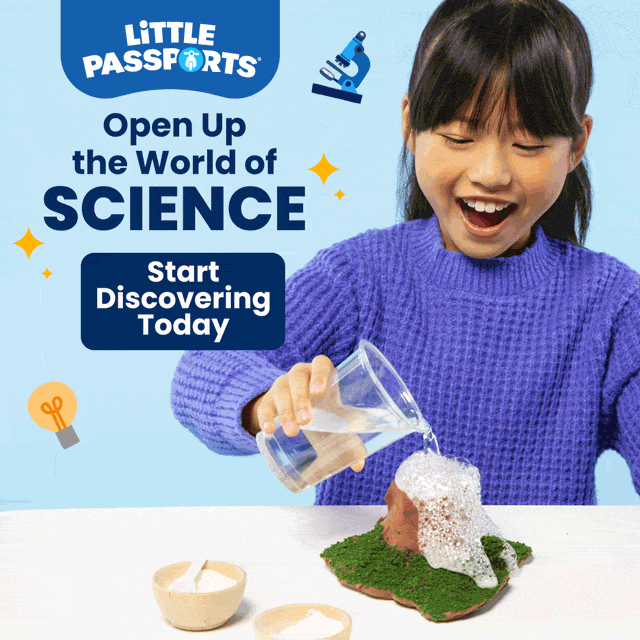
Celebrating International Day of Women and Girls in Science
Today is International Day of Women and Girls in Science! We’re celebrating the hard work and ingenuity of the millions of women around the world working in science. To mark the occasion, we reached out to a data scientist whose interest in science has taken her to two continents and through two postgraduate degrees. She gave us her thoughts on science and what’s great about it. We hope she’ll inspire your kids as much as she inspires us.
Chen Chen is a data scientist at an advertising and technology company in Portland, Oregon. She solves tricky puzzles, like how to figure out who actually saw an advertisement in the physical world. But she didn’t always know that having a career in science was what she’d like to do!

Growing up in the coastal city of Qingdao, China, Chen explored interests in drawing and martial arts. When she did choose science for a career, she did most of her training in Earth science, studying earthquakes while earning a PhD with a concentration in geophysics. Her road through science took many twists and turns, covered a lot of miles, and opened new and unexpected opportunities.
Q: How did you get interested in science?
A: My parents were really open-minded and let me try different things when I was a kid. Whatever my interest was, they provided opportunities. I tried a lot of things and gave up on a lot of them! But I was good at math and physics in school, and because I was good at it, I got positive feedback and kept wanting to do more of it.
Q: Was science easy or hard for you?
A: For me, doing science wasn’t always easy. In school I definitely had some setbacks, but my professors and classmates supported me. My mom has always been very important. She may not always understand the science, but she’s always there if I have a question or just need to talk. She does it in a quiet, reassuring way. She’s there to say, “It’s okay. You’ll be fine. You’ll be able to do it.”
Q: What do you love about science?
A: With science there are so many possibilities. So many exciting things involve science. In graduate school I worked with seismic data to understand why the midwestern United States has earthquakes, and that’s useful for the scientific community and the general public.
But you could study science and eventually become a doctor who treats patients or a researcher who looks to cure cancer. You could design equipment and tools that make people’s work more efficient. There are just so many opportunities out there.
Q: How did you end up using science at an advertising company?
A: In college, I first started working with rock data and chemical compositions, which was exciting to me because I got to collect samples in the field and analyze them in the lab. Earthquakes excited me—I still clearly remember my first time experiencing one when I was in college—so I switched to studying that later. And with earthquakes there’s a lot of data to work with. Even though this is an advertising company, my experience working with large amounts of location-based data prepared me for doing this job.
Being in science, you get to learn how to use different tools and methods for whatever you want to accomplish—that’s part of science training. You have a problem you want to solve, and by trial and error, you figure out a way to solve it!

Together Time
One thing we found interesting about Chen’s story is that science influences things we don’t always expect, like what we see on highway billboards! Ask your kids what other things scientists might work on. Here are a few areas they might not know scientists study:
- Which smells make people more likely to enjoy a store
- How to make toys and baby cribs safe
- How to make store-bought food taste good and stay safe to eat
- Whether new fleece clothing pollutes the environment as it ages
Women and girls play essential roles in all kinds of science: discovering and building new things, engineering ways to make complicated ideas work in the real world, leading expeditions to far-off places, and more. Happy International Day of Women and Girls in Science!
Want to inspire a love of science in your kids? Check out one of our STEM kits for kids and fuel their curiosity today!
